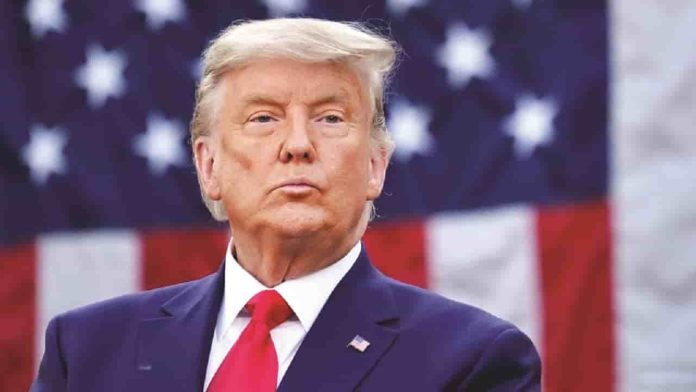By Kenneth Tiven in Washington
The legal ramifications for former US President Donald Trump’s criminal referral for the January 6 insurrection are substantial. But having his last six years of income tax filings revealed will be a massive embarrassment to someone whose life revolves around a money myth. The tax data interpretation will recalibrate Trump from a successful businessperson to a man with questionable financial skills. That is not a promising outcome for a man who wants to escape a prosecution where a conviction would make him ineligible to hold political office.
For decades, Trump had evaded any realistic explanation of how he filed for bankruptcy six times and still made money. The House Ways and Means Committee recently voted 24 to 16 to release tax returns Trump had fought to keep private. Will this reveal the truth? Some of it, perhaps.
His battle was lost when the Supreme Court refused to intervene, accepting without comment the applicability of a law giving the committee’s chairman the ability to see anybody’s federal tax documents, even the president. Trump had defied political tradition by refusing to make tax records public when he received the Republican nomination in 2016.
After the vote, Democrats revealed that the Internal Revenue Service (IRS) had failed to audit Trump’s taxes for his first two years in the White House despite a mandatory audit of sitting presidents. It could take several days before anything is released to carry out redactions of personal information, such as social security numbers.
In 2020, The New York Times released findings of an investigation into Trump’s tax-return data covering more than two decades. He paid no federal income taxes in 11 of 18 years that The Times examined; he also reduced his tax bill with questionable measures, including a $72.9 million tax refund that, as of 2020, was the subject of an IRS audit.
The IRS computer systems are antiquated by today’s standards and the department has been understaffed for quite some time. The Washington Post wrote “that he paid no income tax in 1978 and 1979, using tax deductions, such as real estate depreciation to claim a negative income of $3.8 million.
In the 2016 presidential debate, Hillary Clinton said Trump did not pay federal income taxes for those two years. Trump responded: “That makes me smart.”
Clinton suggested that Trump might not have paid “any federal income tax for a lot of years”—which turned out to be the case. Trump replied the government would have “squandered” the money.
In that first presidential campaign, he flew around the nation on a Boeing 767 jet with Trump ostentatiously painted on the side, always parking it as a visible prop in airport rally videos. That and his frequent boast that he was an extraordinarily wealthy and successful tycoon impressed some voters. Trump claimed he would release his “beautiful” tax returns to back up his rhetoric. After winning, he said he would not release them because of an audit by the IRS. When the IRS said it was not an issue, he outright refused. About eight hours after the committee vote, the Trump campaign responded by seeking donations for an “epic” campaign rally with a lottery to get free tickets and air transportation. However, no date or location was given.
Also read:


